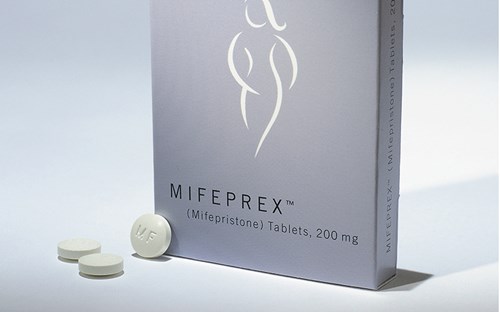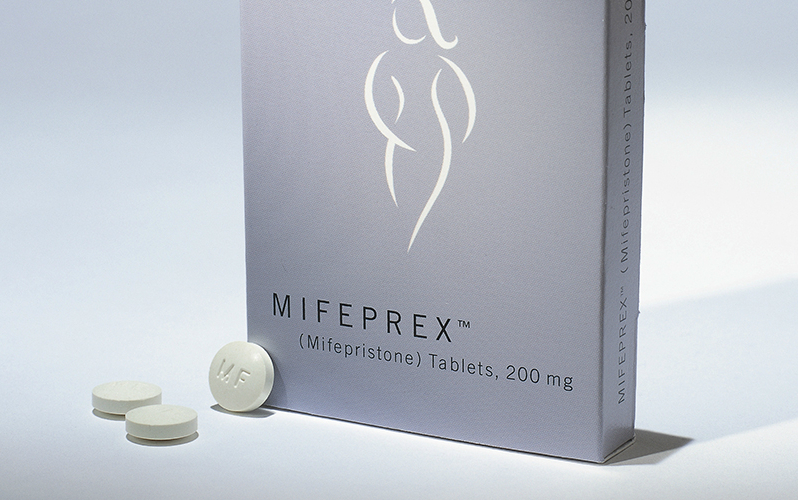Abortion clinics aren’t going away but increasing numbers of pregnant women are taking advantage of fewer and fewer restrictions on the life-ending pills they can receive through the mail.
Chemical abortions now account for 60% of all abortions performed, according to The Family Research Council.
“Those of us who are policy-makers, Christians looking at this, this really is the new frontier, and our efforts and our prayers need to be looking at this serious issue,” David Closson, the FRC’s director for the Center for Biblical Worldview, said on Washington Watch Friday.

The U.S. Supreme Court unanimously ruled last week that a group of pro-life doctors who challenged the Food and Drug Administration’s policies making access to the drug far easier did so in the wrong forum.
The Court offered no opinion on the dangers or morality of Mifepristone but said the drug had caused no suffering or injury for the plaintiffs in the case.
Justice Brett Kavanaugh, writing for the court, said he did not doubt the doctors’ “sincere legal, moral, ideological and policy objections to elective abortion and to the FDA’s relaxed regulation of Mifepristone.”
But those objections did not constitute grounds for a federal case, the Court ruled.
Not the last word on this
It’s an issue that could come back around soon, Closson told show host Jody Hice.
“Thankfully there are other cases in the works and, Lord willing, soon we will have other courts that will look at this and actually look at the merits of the case,” Closson said. “When you look at the merits of the case, our prayer needs to be, Jody, that courts will realize these pills are obviously dangerous for the unborn child, but they're also dangerous for the mother as well.”
 As of 2022 the FDA had received 32 reports of deaths associated with use of Mifepristone since the product was first approved in September of 2000.
As of 2022 the FDA had received 32 reports of deaths associated with use of Mifepristone since the product was first approved in September of 2000.
Use of other drugs or co-existing medical conditions were possibly present among reported deaths, the FDA says.
Heart attack and loss of consciousness are among the rarer side effects noted, nausea, fever and vomiting among the more common.
How Obama administration changed policy
When abortion drugs first became available, Closson said, it was required that users be under a doctor's care. That began to change with Barak Obama.
“It was first in 2016 under the Obama administration that they started walking back some of the guardrails. Then under the Biden administration, they've really walked back the guardrails,” Closson said.
 Pro-abortion advocates praised the Supreme Court’s ruling as another in a string of victories since the Court overturned Roe v. Wade in 2022.
Pro-abortion advocates praised the Supreme Court’s ruling as another in a string of victories since the Court overturned Roe v. Wade in 2022.
Vice President Kamala Harris rallied the Democrats’ base last week telling them that the Supreme Court’s latest ruling “is not going to change the fact that Trump’s allies have a plan that if all else fails, to eliminate medication abortion through executive action.”
Trump, in fact, in mid-April alluded to a forthcoming announcement on whether he would allow Mifepristone through the mail as it’s so widely distributed now. He’s made no such announcement.
Mifepristone, meanwhile, is available through mail in 50 states, even those with rigorous abortion restrictions in place.
“Many states have aggressively passed legislation to eliminate surgical abortion. However, you can request these pills through the mail. The Biden administration says this is not against the law, though I would argue it’s against the law under the Comstock Act,” Closson said.
The Comstock Act of 1873 refers to a series of provisions in federal law that criminalize the involvement of the U.S. Post Office in transporting and delivering certain abortion-related materials.
 The Biden administration doesn’t push abortion only in the U.S.
The Biden administration doesn’t push abortion only in the U.S.
It’s been known to press other nations on the issue and did so as recently as last week at the close of the G7 Summit in terse back-and-forth with Italy’s conservative prime minister ,Giorgia Meloni. The two sides butted heads over the language in an official summit statement.
“What’s interesting here is the scope of the international bureaucracy behind these organizations. They’re on autopilot writing about these big concepts … comprehensive sexuality, universal healthcare … a centralization of powers in areas we would object to.
“The Biden administration probably was furious because one of the big themes of the administration is that the Dobbs decision is horrible, and they’re going to make this case that they’re on the side of women and abortion rights,” Chris Gacek, the FRC’s senior fellow for regulatory affairs, told Hice.
Ultimately, Biden v. Meloni was a draw.
The word “abortion” does not appear in the 2024 G7 communique, but it defers to the statement at last year’s G7 meeting in Japan which supports “comprehensive sexual and reproductive health rights for all.”
What pregnancy isn’t
Closson took issue with Harris’ characterization of pregnancy as an illness or disease.
“Pregnancy is not a disease, but what's actually ironic is when Mifepristone was approved back in 2000, the expedited process that the FDA had to use, they actually had to categorize pregnancy as a disease," he said. "Of course, we know any sane person will admit pregnancy is not a disease."







